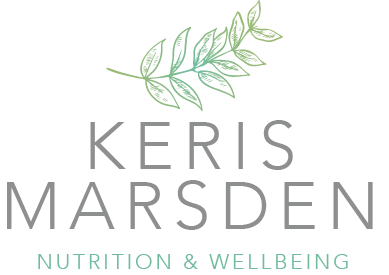Protein powders 101
I receive multiple questions about protein powders so decided to put together this article detailing everything you need to know about protein supplements.
What are protein powders?
These are powder supplements that offer a concentrated dose of protein, usually one scoop offers 20-30g of protein.
They can provide a convenient means of meeting you protein requirements which is typically between 1-2g of protein per kilo of bodyweight daily.
The protein is sourced from the following:
eggs
milk
soybeans
potatoes
pumpkin
peas
rice
hemp
Some protein powders have other ingredients including carbohydrates, fats, vitamins and minerals and maybe designed more as a sports performance supplement or meal replacement shake.
Are protein powders good for you?
Whilst I advocate a real food basis for your nutrition, these could be considered a functional food, something that is minimally processed but serves a purpose.
Protein powders are a convenient option to help you meet your protein requirements which helps with everything from energy regulation, cognitive function, bone dense, sports performance and injury or surgery recovery.
Aren’t protein powders full of sugar and synthetic ingredients?
Certain brand will have 10+ ingredients, many of them unrecognisable.
Thickening agents, flavours, sweeteners, emulsifiers and sugar are often added to improve the texture and taste of protein powders.
Carbohydrates in the form of maltodextrin maybe added to protein drinks designed for sports performance.
If you’re consuming a protein powder on a regular basis it’s best to opt for a cleaner brand with less synthetic ingredients.
More quality, natural brands will simply contain the protein powder and nothing else or just one emulsifiers like guar gum and a natural sweetener such as stevia, monk fruit, xylitol or erythritol.
A few examples include Pulsin, Nuzest, Now, Motion Nutriton, Sunwarrior, Raw Sport, Lamberts, Solgar, Puriton.
Whatever you decide always choose a protein powder with a GMP label, this stands for “good manufacturing practices” so you know the manufacturer adheres to best practice standards for the supplement industry. This also means all the ingredients will be listed.
If you work in the armed forces or compete in sports (so have regular drug tests) only use products tested and certified by Informed Sport.
What if I don’t like the natural options?
Less ingredients can make natural protein powders less palatable.
You can add plenty of healthy ingredients to improve the taste and texture.
After adding milk or water you can thicken a protein drink with nut butter, yoghurt, egg yolks, bananas and frozen berries.
You can add flavour with cocoa, carob, vanilla extract, honey, maple syrup, dates or flavoured stevia drops.
If you’re not keen on the taste, cost or calorie addition needed with more natural options, you could also stick with a more commercial brand that just has 2-3 ingredients and typically sucralose as a sweetener.
Is it better to consume dairy based (whey) or plant based protein powders?
It really depends on what agrees with your body.
All protein powders can challenge you digestively as they’re a concentrated source of protein that can cause gas and constipation. Adequate hydration and fibre intake are helpful to avoid this.
Whey is one the best options for muscle building due to the high leucine content, an amino acid that kickstarts muscle building processes in the body.
You can buy two types:
1) Whey isolate which is lower in lactose so maybe better tolerated if dairy is problematic for you
2) Standard whey which also contains a slow-release protein known as casein
If you can’t tolerate whey you can try rice, hemp, pea, soy or pumpkin protein powders, some plant base formulas contain a combination of these.
Where possible buy a sachet or small tub to test out how it works for you digestively and taste wise before committing to a kilo.
What about protein bars?
Whilst the protein content and low carb labels might make these seem like a healthier option, most commercial protein bars are full of synthetic ingredients and would definitely come under the banner of an ultra-processed food.
You might still want to eat these but it should be part of an otherwise real food, nutritious diet and they’re not likely much different to eating a chocolate bar.
Better protein bars are available using a more natural, whole food ingredients such as egg whites, dried fruit, nuts and seeds.
You can also make your own at home by adding protein powders to banana bread and flapjacks. Check out our Fitter Food recipes for some kitchen inspiration.
Better still just eat a tin of fish or a couple of boiled eggs for a nutrient dense protein hit.
Are collagen supplements a protein powder?
In short, no.
Collagen has a limited range of amino acids (the building blocks of protein) compared to whey or plant-based protein powders.
Collagen can still be beneficial to take if you’re looking to support your joint health but this would be in addition to meeting your protein needs through dietary sources and protein powders.
Can you have too much protein powder?
Protein powders should ideally be used to supplement dietary protein.
The body requires a variety of protein sources to obtain a balance of amino acids.
A typical serving is around 20-25g to maximise muscle protein synthesis but you can consume up to 45g daily.
Higher doses of 30-45g may be required if your protein needs are greater (as you weight more), after intense or longer training sessions or to mitigate muscle loss that occurs with ageing.
Protein absorption also declines with age so a higher dose may be helpful.
You may also need to rotate the type of protein powder you use to avoid developing an intolerance.
Each time you finish a tub of one source e.g. whey, you could swap to a plant based protein powder for a few weeks and then back to whey.
How should I take it?
You can simply mix with milk or water or knock it back like a supplement.
Many people prefer to consume after exercise to support recovery and because liquids tend to be easier to consume post exercise.
Other options include:
Proats: either stir into porridge or soak oats overnight with protein powder and milk
Add to natural yoghurt or a plant-based alternative to boost up the protein content
Mix with warm milk and a shot of coffee to make a protein latte
Add to baked goods like flapjacks, banana bread, muffins or cookies
Make protein pancakes by mixing with eggs, nut butter and mashed banana
Can children have a protein powders?
If children are eating a varied diet with regular servings of protein then powder supplements are unnecessary. However, powders can provide a versatile and convenient option for a healthy breakfast or snack in place of carb heavy options.
You can add protein powder to porridge, pancakes and smoothies.
You may prefer to choose a natural one and will need to adapt the serving size to meet children’s protein requirements detailed below:
Age Daily Protein Requirements
1-3 years 14.5g
4-6 years 19.7g
7-10 years 28.3g
11-14 years (Males) 42.1g
11-14 years (Females) 41.2g
15-18 years (Males) 55.2g
15-18 years (Females) 45.4g
Are protein powders safe during pregnancy?
In theory yes, they can be extremely helpful as protein needs increase during pregnancy and during breastfeeding.
I often recommend a nutrient dense smoothie to many of my clients during these life stages as they’re sleep deprived and super busy, it’s a convenient way to support their nutritional needs.
It’s arguably even more important to pick a quality protein product with good manufacturing practices (or approved by informed sport) when pregnant and breastfeeding to avoid contaminants.

